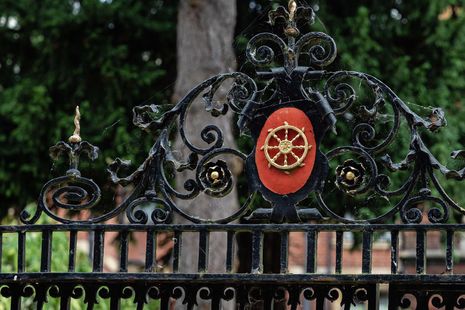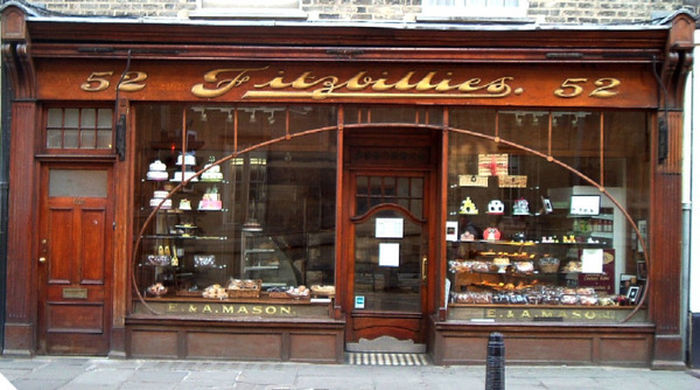Light News – Week 7: A local businesses initiative, the Roman legacy, virtual Olympics and peregrine falcons
In this week’s light news, Cambridge students and alumni collaborate to help local businesses, St Catharine’s fundraise for anti-racist charity and Pembroke Porters save newborn birds

#CatzShowTheRedCard
Students at St Catharine’s College have organised a virtual Olympics as an anti-racist initiative to raise money for Show Racism the Red Card UK, as the Cambridge community continues to react to the death of George Floyd in Minneapolis almost three weeks ago.
The online competition will take place between 12th-26th June, with students paying £2 to enter each event.
Ranging from the light-hearted to the more athletic, events include running and cycling the furthest on Strava, running the fastest 1K or 5K, achieving the highest number of keepy-uppies and, facing off in egg-and-spoon races.
Participants will record themselves participating in an event, donate a £2 minimum requirement to the competition’s gofundme page, nominate two friends to continue the fundraising endeavour, then tag the College’s JCR on their Instagram page with the hashtag #CatzShowTheRedCard.
The event organisers have set a £250 target.
‘Be a Local Hero’
Jack Neill, an Engineering Master’s Student at Christ’s College, and Chris O’Connor, a graduate from Loughborough University who works in the sustainable energy sector, have co-founded a local businesses initiative called ‘Be a Local Hero’.
Be a Local Hero is a free platform that allows independent businesses to easily sell vouchers to their local community, in order to help with cash flow during the lockdown. These vouchers are an advanced payment, as they can be redeemed when the businesses reopen.
Jack Neill told Varsity that after his end-of-year exams were cancelled, and co-founder Chris O’Connor was furloughed under the Government’s Coronavirus Job Retention Scheme, “we decided to put our heads together and try to think of a way to help [...] our favourite local bars, cafes and restaurants [which] were all closing down [...] to ensure they’d be able to reopen after the dust settled.”
He added that they do not take any commission on the voucher sales, with money transferred directly from the customer to the business via an internet business software platform called ‘Stripe’. They have also developed “a comprehensive voucher management system to handle the redemption process using a QR code.”
Developing the Be a Local Hero platform has been a collaborative endeavour, with Kenneth Wong, a graduate from Sidney Sussex College, Katie O’Connor, a graduate from the University of Exeter, and Lili Pierret, a medical student at Christ’s College, all having contributed. Neill said:“together we all have a passion for supporting independent businesses, and hope that we can help those who need it most.”
The response to the initiative has been positive, with more than 40 businesses signing up. Neill was proud of “a great platform to share the personal stories behind local businesses,” wishing that “as lockdown eases we can continue to bring together communities and share what makes them so great”.
Calling all Local Heroes!
- Be A Local Hero (@BeALocalHeroUK) April 18, 2020
We've set up a platform to let your local, independent businesses sell vouchers during the #lockdown, that you can redeem once they re-open.#bealocalhero by buying a voucher and support your local businesses today!
Find us at: https://t.co/HnwcgLVwZY pic.twitter.com/NTDMbOAgnC
Who are the English?
In a recent article from The Times, Mark Bridge wrote about new research by Professor Susan Oosthuizen, Emeritus Professor in Medieval Archaeology at the University of Cambridge, suggesting that English heritage is rooted in Roman-Briton continuity, as opposed to a Saxon invasion.
In an online event , Oosthuizen discussed her book The Emergence of the English, and argued that the writings of a British monk called Gildas (c.500) in fact indicated that institutions such as the Church and the military were modelled on Roman tradition.
She added that “the earliest Christian kings of Kent, Northumbria and Deira were buried in the ‘porticus’ of their principal ministers, emulating royal mausolea in Rome,” and went on to argue in a broader social context that the decline of British towns was an ongoing process which carried over from the Roman period, rather than a direct consequence of imperial rule.
In terms of linguistic heritage, Oosthuizen suggested that Old English and its Germanic influence should not be taken explicitly as evidence of a conquest, but rather this development could have been gradual, becoming a lingua franca via circumstances such as trade. She argued that “the men and women using these new forms of material culture [...] found no conflict in continuing to speak Brittonic and late spoken Latin.”
She believes that they turned “for their defence to legal and military structures explicitly modelled on Roman antecedents and in legitimating political authority in terms of its real or imagined Roman heritage”.
Her 2019 book added to the ongoing debate amongst medievalists and intellectuals surrounding the origins of English national identity.
8. Academic problems with both the term and its interpretations of the period between 400 and 1066 are discussed in my book on ‘The Emergence of the English’. END pic.twitter.com/lMNiXpozDn
- Prof Susan Oosthuizen (@DrSueOosthuizen) June 3, 2020
The story of the two rescued peregrine falcon chicks
Porters at Pembroke College this week managed to rescue two peregrine falcon chicks after failed first flights. The college has been on standby for reports of unsuccessful fledglings.
Caught up with the last chick in the nest with another large audience of onlookers earlier. I’m hoping to hear about the return of the first fledged chick and the one from today, sometime tomorrow. This one was looking keen to go at times, fingers crossed. pic.twitter.com/a3zzWxE8wu
- Cambridge Peregrines (@camperegrines) June 8, 2020
The rescued fledgling’s parents, Falcon and Tiercel, play a somewhat iconic part in the Cambridge landscape for some, seen frequently on buildings such as the University Library and the Pembroke College Library clock tower.
The chicks, caught with towels and placed inside rescue boxes, have since been transported to the Raptor Foundation at St.Ives, where they will be nursed back to recovery before being released together.
The Raptor Foundation currently accommodates 190 animals, and takes care of injured birds brought to them by members of the public. They have, however, been adversely affected by the pandemic and having to close their visitor centre - to support their continued efforts during this outbreak, they have a gofundme page.
 News / Colleges charge different rents for the same Castle Street accommodation2 March 2026
News / Colleges charge different rents for the same Castle Street accommodation2 March 2026 News / King’s hosts open iftar for Ramadan3 March 2026
News / King’s hosts open iftar for Ramadan3 March 2026 Theatre / Lunatics and leisure centres 4 March 2026
Theatre / Lunatics and leisure centres 4 March 2026 News / Angela Merkel among Cambridge honorary degree nominees27 February 2026
News / Angela Merkel among Cambridge honorary degree nominees27 February 2026 News / Private school teacher who lied about Cambridge degree barred from teaching27 February 2026
News / Private school teacher who lied about Cambridge degree barred from teaching27 February 2026









